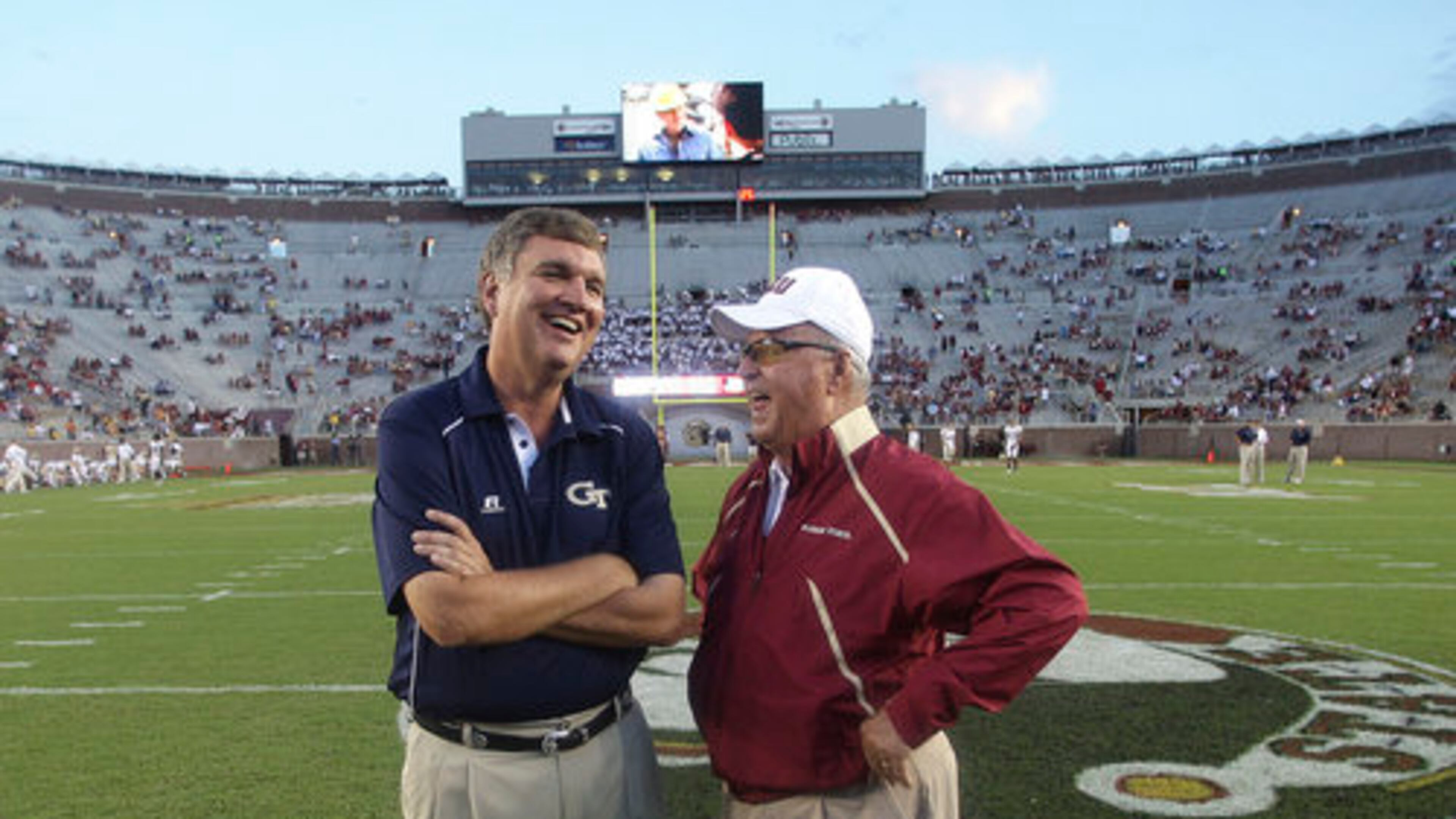Bill Curry, Paul Johnson remember Bobby Bowden

Bill Curry was the coach at Alabama in the late 1980s when he called on his friend Bobby Bowden to pay a visit to him and his staff. At the wheel of Florida State’s juggernaut, Bowden was asked by Curry to speak to his Crimson Tide staff about goal-line offense.
“And so he went up to the board, and I expected this sophisticated package of off-tackle runs, sweeps, up-the-middle (runs), traps, play-action passes,” Curry said Saturday. “He drew one play.”
It was a handoff to the fullback, who was to take a lateral step and then pick out a gap to run through.
“And he said, ‘That’s it. That’s our goal-line offense,’” Curry recalled. “And I said, ‘Aw, come on. Don’t tell me that. My whole staff is sitting here.’ And he said, ‘No, that’s it.’”
Later, Curry’s staff began looking at the vaunted Seminoles’ goal-line plays.
“And that’s all they did, and nobody could stop them,” Curry said. “Of course, they were better than everybody. That didn’t hurt. But we had fun with things like that.”
Following his death Aug. 8 at the age of 91, the coaching great has been celebrated with memories and tributes, including a memorial service Saturday in Tallahassee, Fla. Curry and another former Georgia Tech coach of note, Paul Johnson, shared their thoughts about the coach who battled the Yellow Jackets for two decades, largely successfully, and became one of the game’s iconic and beloved figures.
“He was just the most likeable guy,” Johnson said.
Both men, coincidentally, got to know Bowden through coaches trips that were paid for by Nike.
Curry recalled how the trips had a short business seminar in order for them to be written off as a business expense. During those lectures, Curry recalled, Bowden stood off to the side, working on his golf swing.
“It was just fun to be around him,” Curry said.
Johnson was the only Tech coach to defeat Bowden, in 2008 and 2009. The latter was a 49-44 thriller in Tallahassee in which there was only one punt.
“We scored and onside kicked and got up by two (scores) and managed to stay up,” Johnson said. “After the game, he came over, he says, ‘You know, you beat me to it. I was getting ready to do that.’ I said, ‘Well, somebody had to.’ And he goes, ‘Yeah. That dadgummed wishbone.’”
Given that Bowden already was facing calls for his job – the loss dropped FSU to 2-4 that season and ultimately led to Bowden’s forced resignation – it was a show of character.
“I always had the utmost respect for him, and he was always so gracious,” Johnson said.
In 34 years at FSU (1976-2009), Bowden was 315-98-4 (.760), won two national championships and, among other accomplishments, finished in the top five of the AP poll for 14 consecutive years (1987-2000). He also was 42-26 in six seasons at West Virginia.
To Johnson, Bowden’s biggest impact on football “was the (aggressive) way that he scheduled teams,” he said. “He got in there and he had a blueprint for building the program, and he followed it and didn’t deviate from it and had unbelievable success doing it.”
“(Coaches) are all going to be remembered by our records, and his was phenomenal,” Curry said. “It wasn’t just good. It was just a remarkable, amazing record of winning.”
Beyond that, Curry respected how Bowden handled controversy within his team and how he proclaimed his Christian faith. And also for his pared-down goal-line offense.
“There was a great message there, too,” Curry said. “Don’t get too fancy on the goal line.”


